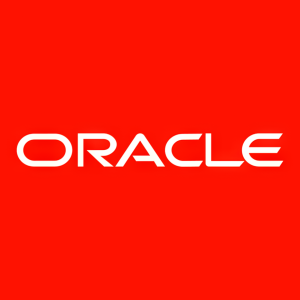Oracle Expands Multicloud Capabilities with AWS, Google Cloud, and Microsoft Azure
Rhea-AI Summary
Oracle is expanding its multicloud capabilities by collaborating with AWS, Google Cloud, and Microsoft Azure. The company is launching Oracle Database services running on Oracle Cloud Infrastructure (OCI) directly in the data centers of these major cloud providers. This expansion includes:
1. Oracle Database@AWS: Offering access to Oracle Autonomous Database and Exadata Database Service within AWS.
2. Oracle Database@Azure: Available in 6 Azure regions, expanding to 15 more.
3. Oracle Database@Google Cloud: Now generally available in 4 Google Cloud regions.
These services aim to simplify cloud migration, multicloud deployment, and management for customers. They provide a unified experience, low latency connections, and flexible purchasing options, including using existing cloud commitments and Oracle license benefits.
Positive
- Expansion of multicloud capabilities with major cloud providers (AWS, Google Cloud, Microsoft Azure)
- Direct access to Oracle Database services in multiple cloud environments
- Simplified cloud migration and management for customers
- Low latency network connections between Oracle databases and applications on partner clouds
- Flexible purchasing options, including using existing cloud commitments and Oracle license benefits
- Rapid global expansion of availability across multiple regions
Negative
- None.
News Market Reaction
On the day this news was published, ORCL gained 0.83%, reflecting a mild positive market reaction.
Data tracked by StockTitan Argus on the day of publication.
Oracle Database services running on Oracle Cloud Infrastructure are deployed directly in AWS, Google Cloud, and Microsoft Azure data centers
"We are working with AWS, Google Cloud, and Microsoft Azure to help customers simplify cloud migration, multicloud deployment, and management," said Karan Batta, senior vice president, Oracle Cloud Infrastructure. "This was unthinkable in the cloud space just a few years ago and together, we will be able to give customers the flexibility to use multiple clouds. Customers can now quickly and easily combine services from across AWS, Google Cloud, Microsoft Azure, and OCI to drive breakthroughs in the cloud."
Oracle Database@AWS Launches at Oracle CloudWorld
Oracle Database@AWS is a new offering that allows customers to access Oracle Autonomous Database on dedicated infrastructure and Oracle Exadata Database Service within AWS. Oracle Database@AWS will provide customers with a unified experience between OCI and AWS, offering simplified database administration, billing, and customer support. In addition, customers will have the ability to seamlessly connect enterprise data in Oracle Database to applications running on Amazon Elastic Compute Cloud (Amazon EC2), AWS Analytics services, or AWS's advanced artificial intelligence (AI) and machine learning (ML) services, including Amazon Bedrock.
With direct access to Oracle Exadata Database Service on AWS, including Oracle Autonomous Database on dedicated infrastructure and workloads running on Oracle Real Application Clusters (RAC), Oracle Database@AWS allows customers to bring together all of their enterprise data to drive breakthrough innovation. The new offering provides a low latency network connection between Oracle databases and applications on AWS. This allows customers to benefit from Oracle Autonomous Database, a fully automated and managed Oracle Database service, and the performance, availability, security, and cost-effectiveness of Oracle Exadata Database Service, while enjoying the security, agility, flexibility, and sustainability benefits provided by AWS.
Customer will also benefit from a simplified procurement experience via AWS Marketplace that enables them to purchase Oracle Database services using their existing AWS commitments and use their existing Oracle license benefits, including Bring Your Own License (BYOL) and discount programs such as Oracle Support Rewards (OSR). To learn more about the latest Oracle Database@AWS news, please visit here.
Oracle Database@Azure is Now Available in Six Azure Datacenters
To meet strong customer demand across the globe, Oracle Database@Azure will soon be available in 15 more regions including Brazil South,
Oracle now operates and manages Oracle Exadata Database Service, Oracle Autonomous Database, and Oracle Database Zero Data Loss Autonomous Recovery Service running on OCI in six Microsoft Azure regions including Australia East, Canada Central, East US, France Central, Germany West Central, and
Customers can purchase Oracle Database@Azure as a completely new service or using their existing Azure commitments or discount programs. They can also leverage their existing Oracle license benefits such as Bring Your Own License (BYOL) and Oracle Support Rewards. Oracle Autonomous Database, Oracle Exadata Database Service, and Oracle Database Zero Data Loss Autonomous Recovery Service are available with custom quotes via private offer. Oracle Autonomous Database is now also available as pay-as-you-go, giving customers the flexibility to deploy a fully managed database in minutes. To learn more about the latest Oracle Database@Azure news, please visit here.
Oracle Database@Google Cloud Now Generally Available
Oracle Database@Google Cloud is now generally available in four Google Cloud regions across
Oracle Database@Google Cloud gives customers direct access to Oracle Database services running on OCI and deployed in Google Cloud datacenters for the first time. This enables customers to take advantage of Oracle's industry-leading database and Exadata technology to accelerate innovation and develop new applications. It also enables customers to easily create new cloud applications using the industry leading Oracle Database or migrate their existing Oracle databases and applications to OCI running in Google Cloud with simplified cloud purchasing and management.
For example, customers can purchase Oracle Database services using their existing Google Cloud commitments and leverage their existing Oracle license benefits, such as Bring Your Own License (BYOL) and Oracle Support Rewards. Oracle Exadata Database Service, Oracle Autonomous Database, and Oracle Database Zero Data Loss Autonomous Recovery Service are available with custom quotes via private offer. Oracle Autonomous Database is also available with usage-based pricing, giving customers the flexibility to deploy a fully managed database in minutes. To learn more about the latest Oracle Database@Google Cloud news, please visit here.
Additional Resources
- Learn more about Oracle Database@AWS, Oracle Database@Azure, Oracle Database@Google Cloud
- Learn more about OCI's distributed cloud
- Learn more about Oracle database services, Oracle Autonomous Database, Oracle Exadata Database Service
About Oracle Distributed Cloud
Oracle's distributed cloud delivers the benefits of cloud with greater control and flexibility. Oracle's distributed cloud lineup includes:
- Public cloud: Hyperscale public cloud regions serve any size of organization, including those requiring strict EU sovereignty controls. See the full list of regions here.
- Dedicated cloud: Customers can run all OCI cloud services in their own data centers with OCI Dedicated Region, while partners can resell OCI cloud services and customize the experience using Oracle Alloy. Oracle also operates separate
U.S. ,UK , and Australian Government Clouds, and Isolated Cloud Regions forU.S. national security purposes. Each of these products provide a full cloud and AI stack that customers can deploy as a Sovereign Cloud. - Hybrid cloud: OCI delivers key cloud services on-premises via Oracle Exadata Cloud@Customer and Compute Cloud@Customer and is already managing deployments in over 60 countries.
- Multicloud: Options including Oracle Database@AWS, Oracle Database@Azure, Oracle Database@Google Cloud, HeatWave MySQL on AWS and Microsoft Azure, Oracle Interconnect for Microsoft Azure, and Oracle Interconnect for Google Cloud allow customers to combine key capabilities from across clouds.
About Oracle
Oracle offers integrated suites of applications plus secure, autonomous infrastructure in the Oracle Cloud. For more information about Oracle (NYSE: ORCL), please visit us at oracle.com.
About Oracle CloudWorld
CloudWorld is where our customers and partners can see the latest innovations in cloud technology, discover methods for getting the most business value from AI today, and explore ways to increase productivity and efficiency through automation. You'll learn from experts and your peers who build and use the applications, cloud infrastructure, databases, developer tools, and AI services that help solve complex business challenges in every industry. Join us to develop new skills and see new capabilities in action. Register now at oracle.com/cloudworld or follow the news and conversation at oracle.com/news and linkedin.com/company/oracle.
Future Product Disclaimer
The preceding is intended to outline our general product direction. It is intended for information purposes only, and may not be incorporated into any contract. It is not a commitment to deliver any material, code, or functionality, and should not be relied upon in making purchasing decisions. The development, release, timing, and pricing of any features or functionality described for Oracle's products may change and remains at the sole discretion of Oracle Corporation.
Forward-Looking Statements Disclaimer
Statements in this article relating to Oracle's future plans, expectations, beliefs, and intentions are "forward-looking statements" and are subject to material risks and uncertainties. Many factors could affect Oracle's current expectations and actual results, and could cause actual results to differ materially. A discussion of such factors and other risks that affect Oracle's business is contained in Oracle's Securities and Exchange Commission (SEC) filings, including Oracle's most recent reports on Form 10-K and Form 10-Q under the heading "Risk Factors." These filings are available on the SEC's website or on Oracle's website at oracle.com/investor. All information in this article is current as of September 11, 2024 and Oracle undertakes no duty to update any statement in light of new information or future events.
Trademarks
Oracle, Java, MySQL and NetSuite are registered trademarks of Oracle Corporation. NetSuite was the first cloud company—ushering in the new era of cloud computing.
![]() View original content to download multimedia:https://www.prnewswire.com/news-releases/oracle-expands-multicloud-capabilities-with-aws-google-cloud-and-microsoft-azure-302245550.html
View original content to download multimedia:https://www.prnewswire.com/news-releases/oracle-expands-multicloud-capabilities-with-aws-google-cloud-and-microsoft-azure-302245550.html
SOURCE Oracle








